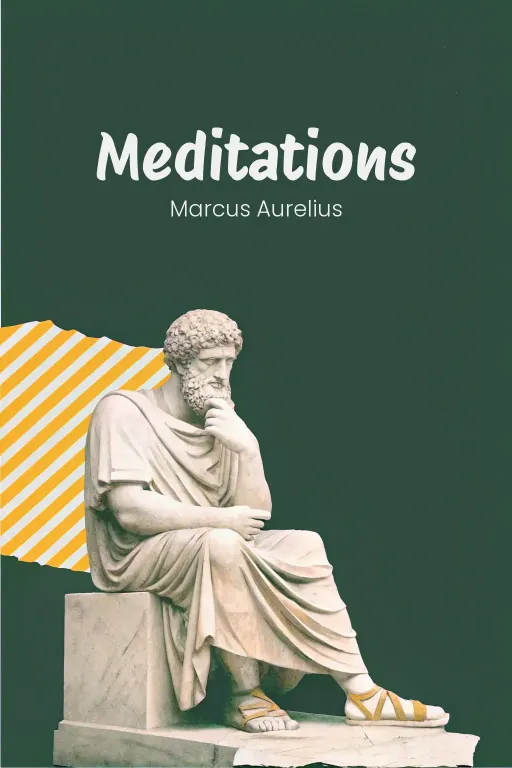
Power Playbook: Master Influence
Podcast by Beta You with Alex and Michelle
The secret methods to getting what you want
Introduction
Part 1
Alex: Hey everyone, welcome! Today, we're tackling The 48 Laws of Power by Robert Greene – definitely one of the most talked about, and, let's be honest, controversial books in the self-help world. Whether you're into Machiavelli or just trying to survive office politics, this book's got something for you. Michelle: Or maybe it just makes you paranoid that everyone's plotting behind your back. Either way, Greene says he's going to reveal the hidden rules of how power, manipulation, and survival work in pretty much any social situation. Alex: Precisely. The book “really” breaks down power as this fundamental force driving all human interactions. Greene pulls examples from everywhere – history, philosophy, psychology – to lay out 48 specific strategies for understanding and wielding power. Michelle: And it's not just dry theory, either. Greene gives us these dramatic stories of rivalries, betrayals, and wins from people like Louis XIV to Talleyrand. Makes you think twice about that passive-aggressive email from your boss, doesn't it? Alex: Okay, so today we're going to look at power through five lenses. First, we're breaking down the basics of power: like, why it matters and how it actually works in relationships. Then, we'll get into useful influence tactics—think of it as learning the playbook. Michelle: After that, things will get a little darker as we talk about psychological manipulation. Or, as I like to call it, "how to spot a manipulator before they ruin your life." Alex: We'll also talk about why being adaptable is so essential—how being flexible can make or break you. Michelle: And finally, the biggie: is power ever actually ethical, or is it always kind of… well, dirty? Alex: We're going to keep things interesting and thought-provoking, with juicy stories and examples that you can actually relate to. So, let's get started, shall we?
Understanding Power Dynamics
Part 2
Alex: So, Michelle, now that we’ve painted this grand picture of “The 48 Laws of Power”, let's dive into the heart of it: understanding power dynamics themselves. But really, why even bother with strategies for power? Shouldn’t just being good at what you do, you know, hard work and talent, be enough to get you where you need to go? Michelle: Yeah, if only, right? Alex: Exactly! if only it were that simple, Michelle. But human nature is anything but. Power isn't just about putting in hours or having a particular skill set. It's about understanding how people perceive you, how you influence them, and how carefully you navigate the often-tricky waters of human connection. I like to think of power as, like, a current in the ocean. You could be the strongest swimmer ever, but if you don't know where the tides are going, you're still going to get pulled under. Michelle: That's a pretty good analogy. So, I'm guessing you've got some kind of story to help us understand this a little better? Alex: Of course! Always! Let's talk about this one particular story from history, one of my favorites. It's about Louis XIV and Nicolas Fouquet, who was his finance minister. Honestly, if you want to see how power dynamics can go completely off the rails, this is the story you need. Michelle: Louis XIV, the Sun King! He practically invented the idea of power being centralized, didn't he? Wasn't he the one who famously said, "I am the State"? I mean, that's some serious dominance he's throwing down. Alex: Totally, Michelle. Louis XIV, like, his whole reign was all about being the ultimate absolute monarch. But what's really interesting is how someone like him, who seemed so powerful, could actually be pretty insecure underneath it all. Fouquet, his finance minister, was super ambitious, really influential, and had amazing taste. Basically, the guy had it all. But, he messed up by thinking he could balance being ambitious with also being subservient to the king. Michelle: You don't want to outshine the guy whose nickname has "Sun" in it! It sounds like a recipe for disaster. Alex: Absolutely. So, Fouquet decides to throw this unbelievably lavish party at his chateau, Vaux-le-Vicomte. It was supposed to be in honor of Louis XIV, right? But instead of making the king feel appreciated, it just made him feel... less than. I mean, this party was unreal. Seven-course meals, fireworks, you name it. All the important people in France were there, even writers like La Fontaine and Molière. Michelle: So, basically, Fouquet threw the “ultimate” flex party. We're talking spectacle, influencers, maybe even some seat fillers? Alex: <Laughs> Exactly! But that's where the problem started. The sheer amount of money Fouquet spent sent the wrong message. Instead of looking like he was honoring Louis XIV, it looked like he was showing off his own wealth and power. And that's a dangerous thing when your boss is trying to run everything. Michelle: And, if I'm not mistaken, Louis XIV wasn't exactly known for being forgiving when he felt like someone was trying to one-up him. Alex: You got it. The king interpreted the whole thing as a direct challenge to his authority. He felt insecure because of it, and so, he accused Fouquet of stealing money and threw him in jail for the rest of his life. Michelle: Well, that escalated quickly... But honestly, was Fouquet really that clueless? I mean, didn't he realize he was, you know, poking the bear? Alex: Here's the thing, Michelle. It wasn't just about Fouquet being arrogant. It was about him not understanding a fundamental truth about power: leaders, even the ones who seem super confident, often have insecurities they're hiding. Instead of seeing that and trying to make Louis look good, Fouquet did the opposite and made himself look like a threat. Michelle: Okay, so that brings us to strategy then, doesn't it? What could he have done differently to keep himself out of jail? Alex: Great question. One of Greene’s laws—specifically “Never Outshine the Master”—would have been a good one for him to keep in mind. You need to find a balance between being ambitious and showing respect. Fouquet could have made it clear that his chateau and the party were all about celebrating Louis XIV's awesomeness. If he'd put the spotlight on the king, he might have avoided looking like a threat. Michelle: So, basically, make Louis feel like the whole thing was his idea? Classic humility meets psychological judo. I like it. Alex: Exactly—it’s about managing perceptions. Which leads to something else: subtlety is a big deal when you're dealing with power. People like Fouquet often think that bigger and louder is better, but sometimes, it's about being modest... but also strategic, like Galileo. Michelle: Wait, Galileo? You mean, like, the telescope guy? What's he got to do with all of this? Alex: Well, Galileo was really smart about how he dealt with power. When he made huge discoveries about space, he didn't just take credit for them himself. He dedicated his work to the Medici family, and give them the credit for his success. It was genius! That way he got recognition and also had the protection of some really powerful people. Michelle: So, he advanced science and managed not to get thrown in a cell? Alex: Exactly! That's the power of understanding power dynamics. Whether you're being strategically humble, connecting your success to other people's success, or just being aware of people's insecurities, emotional intelligence is key. Michelle: And speaking of emotions, “envy” probably deserves its own section. I mean, Louis XIV didn't take Fouquet down because it was logical. It was emotional. Alex: Oh, for sure. Power dynamics often come down to emotions like envy, fear, or insecurity. Leaders are human, so they have those feelings too. So, if you're working in a company or an organization, recognizing those emotions is just as crucial as any other calculated move you might make. Michelle: Alright, let me see if I get this: First, don't throw a party that makes your boss look bad. But more broadly, it's less about what you do and more about how you make others feel about themselves in relation to you. Alex: Nailed it, Michelle. Power isn't some fixed thing; it's something that's shared and shaped by how people see things and how they interpret them. You have to think about how your actions will make others feel and adjust accordingly. Michelle: Got it. Avoid fireworks and court a Medici instead. I think I’m ready to survive my next meeting with senior management.
Strategies for Gaining and Maintaining Power
Part 3
Alex: So, having a good handle on power dynamics is key, right? And the next step is really mastering the tools to use influence effectively. These strategies, they come from history, psychology, and they're like a practical guide to getting and keeping power in the real world. Today, we're diving right into those tools, focusing on actionable techniques that show how you can build and keep power. Michelle: Actionable techniques, eh? Sounds like we’re cracking open the "Power for Dummies" handbook. So, where do we even start? Is it about not spilling coffee on your way to the CEO's office or something a bit more inspiring? Alex: Definitely aiming higher here! It’s way bigger than office etiquette. Remember, these strategies are all about understanding how people tick. One of the first lessons from Greene is "Never Outshine the Master." It’s about ambition but also about protecting the egos of people above you. Michelle: Never outshine... So basically, don't be “too” good at your job because you might make the boss feel bad? That feels a bit backwards, doesn't it? Alex: It might seem that way at first, but think about it: power isn't always about being the best or most qualified. It's about relationships and how people see you. Even the most capable folks can stumble if their success feels like a threat to their bosses. So, to really drive this home, let's go back to the story of Nicolas Fouquet – it’s a pretty dramatic example of this principle in action. Michelle: Oh, back to Fouquet, are we? This has gotta be about that over-the-top party we talked about before, what was it..."opulent downfall," right? Alex: Exactly, but it’s worth a second look because it so clearly shows how dangerous it can be to outshine your boss. Fouquet was trying to cement his place with Louis XIV by throwing this insane party at his chateau, Vaux-le-Vicomte. It had everything you could imagine—luxury, prestige, even Molière was there. But instead of impressing Louis as this super-loyal guy, Fouquet accidentally made the king feel… well, second-best. Michelle: And the Sun King wasted no time in shutting him down permanently. Alex: Bingo. The funny thing is, Fouquet wasn’t trying to be malicious. He didn't mean to challenge Louis, but the sheer scale of the event created a new story: here’s the finance minister with more wealth and influence than the king. Louis saw it as a direct challenge, and Fouquet ended up arrested and in prison for life. Michelle: Okay, hold on a sec. If Louis got all insecure just because one of his guys was living large, does this mean all leaders are secretly terrified of their employees doing well? Or is this just a 17th-century king thing? Alex: It's not just a monarchy thing. Insecurity in leadership? That’s pretty universal. Leaders, no matter how confident they seem, often feel the pressure to keep their power. When people working under them step into the spotlight too much, it messes with the power balance and makes them feel vulnerable. That’s why Greene’s advice is to always be competent, but never so much that you leave your superiors in the dust. Michelle: So, to bring this into today’s office: if you nail a quarterly report, make sure to throw praise all over your boss. Like, "I couldn't have done it without you,” that sort of thing, right? Alex: Exactly, you channel your success to make their leadership look even better. And if you want to take charge, do it in a way that doesn’t threaten their position or sense of authority. Michelle: Got it. So a little humility can go a long way. Now, let's get to this next strategy about hiding your intentions because that sounds a little morally questionable, at best. Alex: I get why it might seem that way at first, but let’s dive into what it really means before we make a call. The idea is to not be totally open about your goals, especially when others might try to mess with them or undermine you. Transparency is great in theory, but it can leave you exposed. Keeping a little bit of mystery can help you protect your goals until it’s go-time. Michelle: Protective mystery… Okay, who's the master of this strategy? Alex: Galileo Galilei. He really turned subtlety into an art form, like when he dedicated his astronomy work to the Medici family. It wasn't just about him trying to get ahead. He connected his discoveries to what the Medici were interested in, so basically, their prestige was tied to his genius. The Medici became his patrons and even protected him from political enemies. Michelle: So, while Fouquet used a fireworks display to hog the spotlight, Galileo dimmed it just enough to make the Medici look like the stars. Smart guy. Alex: Exactly. Galileo didn’t hide what he did, but he knew how to present it so that it helped his allies, which, in turn, helped him. By seeming modest and supporting the power structure around him, Galileo avoided creating unnecessary drama. Michelle: But would you say that’s a bit of a compromise on honesty? I mean, he wasn’t exactly thanking the Medicis for peering through telescopes. Alex: Not at all. Honesty in this context is about timing and how you say things. Galileo didn’t change the facts. He managed how people saw them. That’s a “really” valuable lesson in managing how your success is perceived. By keeping his bigger goals quiet, he avoided threats until he was secure. Michelle: Alright, so we've got being humble when it helps and carefully managing your image. What's next? Do we befriend our enemies or something equally cunning? Alex: Not too far off, actually. The next idea is to use selective honesty to disarm, meaning you're truthful when it benefits you. The idea here is that a moment of honesty or generosity when people least expect it can lower their defenses and build trust in a way that catches them off guard. Michelle: Ah, this has "con man" written all over it! Let me guess—Victor Lustig, the guy who "sold" the Eiffel Tower, right? Alex: Spot on! Lustig's story with Al Capone is the perfect example. He borrowed $50,000 from Capone under false pretenses, setting it up so anyone would think he’d run off with the money. Instead, Lustig gave the money back, saying the investment didn’t pan out. His honesty, which no one saw coming, earned Capone’s trust...and a $5,000 bonus. Michelle: So Lustig basically tricked Capone into paying him for being trustworthy. That’s kind of beautiful. Alex: It “really” is. And it perfectly shows how those moments of unexpected honesty or generosity can create chances to move in spaces where otherwise suspicion would block your way.
Psychological Manipulation and Influence
Part 4
Alex: So, moving beyond individual strategies, the real power of these principles lies in how they fuel personal and professional growth. Which brings us to today’s topic: Psychological Manipulation and Influence. We're diving into some pretty advanced influence techniques, exploring how psychological insights can be used to gain an advantage, and, of course, the ethical considerations that come with it. Michelle: Psychological manipulation? Sounds like something out of a supervillain origin story. Please tell me we’re not just endorsing these tactics without a serious ethical warning. Alex: Absolutely not, Michelle. This is about understanding these techniques, spotting when they're being used on you, and then deciding how—or even if—you’d ever use them. So, let’s break down three methods that Greene talks about: appealing to self-interest, creating cult-like followings, and posing as a friend while working as a spy. Michelle: Quite the trifecta, indeed. Let's start with the first one—appealing to self-interest. I used to think being genuinely nice was enough to get people on your side. Alex: Well, being nice is great, but it often isn't enough to really sway someone. Greene argues that tapping into self-interest—showing people what they personally gain—is a much more reliable motivator than just relying on gratitude or being nice. A classic example is from the Peloponnesian War, where Athens was being courted by two rival states: Corcyra and Corinth. Michelle: Let me guess, one side appealed to Athens’ self-interest, the other played the "remember what we did for you" card, and the self-interest folks won? Alex: Exactly. Corcyra pitched Athens a very pragmatic offer. They argued that an alliance with them would give Athens a major naval advantage against Sparta. The key was appealing to Athens’ own strategic interests. Corinth, on the other hand, tried to tug on Athens’ heartstrings, reminding them of their long-standing friendship and past favors. Those emotional arguments just didn't stick. Athens chose Corcyra, proving that when power's at stake, tangible benefits often win out over sentimental loyalty. Michelle: So, rule number one: when you want to get something done, dangle a carrot. But, I mean, is that inherently cynical? Does it reduce human relationships to just transactions? Alex: It can feel a bit cold if you overdo it, but it doesn’t have to be manipulative. Think of it more as aligning priorities. You're not guilt-tripping someone; you're finding where your goals overlap and showing them how they benefit too. It’s more about finding a win-win, rather than manipulation. Michelle: Okay, fair enough. But moving from pragmatism to, let's just say, theatrical manipulation: this "creating a cult-like following" strategy. Is this about incense, matching robes, and group chants... or just really good branding? Alex: It's a little bit of both, actually. At the core, this strategy taps into some very basic psychological needs – a sense of purpose, belonging, and emotional resonance. Take Franz Mesmer, the 18th-century physician. His work really exemplifies this concept. Mesmer built this almost mystical aura around his medical practice, using sensory overload and spectacle. He turned his treatment space into theater, complete with mirrors, music, and dramatic rituals. People weren't just buying into his medical ideas, they were buying into him. Michelle: So, Mesmer was less of a doctor and more of an 18th-century influencer. I bet his hashtags would've been incredible: #MagneticHealing and #MesmerMania. Alex: <Laughs> Exactly! But, his success came from mixing vague promises with a lot of emotional engagement. Because his methods were so unclear, his followers could interpret his work in their own way, which made them feel personally connected and invested. And that's how he cultivated this very loyal, almost fanatical following—at least until skeptics exposed him as a fraud. Michelle: That's fascinating – and a little frightening, honestly. Because we still see echoes of this today. From spiritual leaders to social media influencers, that mix of ambiguity and emotional appeal “really” hooks people. But what's the practical takeaway here? How do you use this strategy... ethically? Alex: The ethical line can be blurry, but it does exist. Aim to inspire, not manipulate. Use emotional and sensory tools to motivate action, but don't deceive. If your leadership is built on honesty and a clear purpose, you can create loyalty without the risk of a Mesmer-style backlash. Michelle: Fair point. But while we're talking about blurred lines, let's get to this third method—posing as a friend while working as a spy. That sounds like something straight out of a Cold War thriller. Alex: Well, it might as well be, considering one of its most famous practitioners was Charles-Maurice de Talleyrand. He was a French diplomat during the Napoleonic era, and he perfected this technique - projecting warmth and trust while secretly gathering critical intelligence. Michelle: Okay, but how did he manage to pull that off without people catching on? Wouldn't his so-called "friends" get suspicious if he was always fishing for information? Alex: That’s where the subtlety comes in. Talleyrand framed his questions as casual conversation, often in very relaxed settings. He used charm and wit to put people at ease, encouraging them to share their thoughts and goals without realizing how much they were revealing. All the while, he revealed very little about himself, maintaining an air of discretion. Michelle: So, basically, Talleyrand weaponized small talk. Can you give me a real-world example of how this worked for him? Alex: One of his most defining moments was during Napoleon’s rise. Talleyrand positioned himself as a loyal advisor, but he was secretly monitoring Napoleon's increasingly authoritarian tendencies. This allowed him to outmaneuver Napoleon during his eventual downfall, and secure his own position under later regimes. Michelle: Wow, talk about playing the long game. But isn't this inherently manipulative? You're exploiting people's trust for your own gain. Alex: It's definitely a gray area. The key is discretion. Building trust is essential in any relationship, but if you’re gathering intelligence with the intent to cause harm, then it crosses the line into exploitation. But, if used carefully, this approach can streamline collaboration by building mutual understanding, as long as your intentions are genuine. Michelle: So, moderation and intent separates savvy diplomacy from outright treachery. Got it. Alex: Exactly. These techniques are powerful, but they come with moral consequences. Whether you're appealing to self-interest, inspiring loyalty, or gathering intelligence, you have to maintain a balance. Misuse these strategies, and the costs can be personal, professional, or even societal. Michelle: A sobering thought to end on, “really”. But it makes sense - power without ethics isn’t sustainable, and influence loses its appeal when trust is broken.
Adaptability and Formlessness
Part 5
Alex: So, all these strategies kind of boil down to one big thing: really thinking about the ethical side of power, and how it affects you as a person. And that brings us to one of the key ideas in The 48 Laws of Power: being adaptable and formless. It’s like everything we’ve talked about so far, all rolled into one. It’s about staying flexible and being ready to change, which is super important if you want to succeed in the long run. Michelle: Formlessness, huh? Sounds like something a fortune cookie spits out. What does that even mean? Are we talking about turning into, like, human chameleons? Alex: Well, you're not completely wrong. Adaptability and formlessness basically mean that being too set in your ways—whether it's your strategy, your personality, or your actions—can “really” mess you up. Being formless is about being flexible and hard to pin down. A good example is Mao Zedong’s guerrilla warfare when he was fighting Chiang Kai-shek’s Nationalist forces. Michelle: Mao, huh? So, this is where power gets down and dirty on the battlefield. What's the story with his adaptability? Alex: It's a perfect example of how being flexible can beat being strong. Before Communist China, Mao had to go up against Chiang Kai-shek’s army. They had way more soldiers, better equipment, and they fought in a much more traditional way. Mao knew that if he tried to fight them head-on, his Communist forces, which didn't have a lot of resources, would be destroyed. Michelle: Yeah, makes sense. Taking on a huge army with better weapons sounds like a terrible idea. So, I'm guessing Mao didn't exactly play by the rules? Alex: Not at all. Instead of fighting like everyone else, Mao used guerrilla tactics. His soldiers stayed away from big battles, focusing on being quick and adaptable. They would attack supply lines, hit smaller groups of soldiers when they were most vulnerable, and then disappear into the mountains. One of the most famous examples is the Long Michelleh in 1934–35—a retreat of almost 6,000 miles. It was super tough, and it “really” showed how tough and adaptable Mao’s troops were. It let them get away from the Nationalist attacks, regroup, and set up a safe place in Northern China. Michelle: So, by being "militarily formless," Mao basically changed the game. He turned a fight he was going to lose into a long, drawn-out one that he could actually win. Pretty clever, but wasn't the Long Michelleh “really” risky? Six thousand miles is a heck of a walk, Alex. Alex: Oh, it was super risky, for sure. But Mao knew that if they stayed in one place or did what everyone expected, they’d be wiped out. The Nationalists might have controlled the cities, but Mao’s soldiers were good at living off the land, getting used to tough conditions, and avoiding direct fights. Eventually, the Nationalists got tired and lost hope, while Mao became more popular with the people in the countryside, which helped him win. In the end, his adaptability helped the Communists take over in a way that a regular strategy never could have. Michelle: Okay, so first lesson: if you can't beat your enemies with guns, outsmart them and wear them down. Adaptability is clearly useful in a fight. But it sounds like it wasn't just about being strategically flexible—it also messed with the Nationalists' heads, right? Alex: Exactly, Michelle. Because Mao was so formless—always changing and shifting—he made things “really” unpredictable, which made his enemies panic. The mental part of this strategy is just as important as the fighting part. A great example of this is Stonewall Jackson during the American Civil War. Michelle: The Confederate general? I don't know much about him, but I'm guessing he didn't get the nickname "Stonewall" because he loved being predictable. Alex: Actually, the nickname came from how tough he was in battle early on, but his real skill was being adaptable and unpredictable. During the Shenandoah Valley Campaign in 1862, Jackson confused the Union forces by moving around “really” fast and erratically. His soldiers seemed to be everywhere, attacking different places one after another. This kept the Union troops guessing. His unpredictability made it seem like he was everywhere, leading the Union generals to think his army was much bigger and stronger than it “really” was. Michelle: It's like a military magic trick. So, while the Union generals were losing sleep wondering where Jackson would strike next, he was winning battles. Psychological warfare at its finest. Alex: Exactly. Jackson deliberately created chaos for his opponents. By not following any patterns, he messed with his enemies' emotions as much as he did with their strategies. The fear of what he might do next was often more powerful than what he actually did. And this isn't just true in war. Michelle: Okay, but let's switch gears for a second. Is being formless only good in wartime, or can you use it in, like, a business meeting? Can someone channel Stonewall Jackson when they're talking about the budget? Alex: Absolutely, Michelle. Adaptability and formlessness are just as useful in leadership, business, and even personal relationships. Think about Bruce Lee’s famous saying—“Be like water.” Water doesn't have a set shape. It fits whatever container it's in, flowing around obstacles instead of fighting them. That's what being formless is all about. Michelle: And it's a heck of a metaphor. So, Lee wasn't just talking about fighting. He was telling people to be flexible, resilient, and to find the easiest way to get things done. Makes sense—I mean, if you smash straight into something, you'll probably break, but water just flows around it. Alex: Exactly. The metaphor explains the idea perfectly: being rigid leads to failure, while being adaptable helps you survive and grow. We see it all the time in business, too. Companies that stick to old ideas—like Kodak with film cameras—often fail because they don't change with the times. Meanwhile, new companies that are flexible and always adapting tend to do “really” well. Michelle: Are we talking about "pivoting," you know, that Silicon Valley word for when a startup completely changes its business overnight? Alex: Exactly. Companies like Netflix changed from mailing DVDs to becoming a streaming giant, and it's their willingness to embrace change that has made them successful. The same goes for our personal lives. Whether you're dealing with office politics or changing careers, being like water—adaptable, unpredictable, and intuitive—is what helps you succeed in a world that's always changing. Michelle: Alright, I get it. Being flexible is clearly a superpower when it comes to being powerful. But isn't there a danger of losing yourself in all the shapeshifting? Where's the line between being fluid and having your own identity? Alex: That’s a “really” good point, and that’s why being formless needs to be a careful strategy, not just losing who you are. It’s about changing how you deal with challenges on the outside, while keeping a clear sense of who you are and what you want on the inside. Mao, Jackson, and even Bruce Lee had clear goals—they just changed how they achieved them. Michelle: So, it's not about being a chameleon just to fit in, but more about strategically changing to fit the moment while staying true to your values. Alex: Exactly, Michelle. It's all about intention. Being effectively formless isn't about being chaotic or random; it's about being adaptable in a calculated way. People who master this skill not only can overcome challenges but also can outlast those who are stuck in their ways.
Ethical and Personal Reflections on Power
Part 6
Alex: So, all of this“really” points to a holistic understanding of how these principles come together as a complete way to approach power. I mean, it's one thing to get the strategies and tactics of influence, but it's another to actually think about the bigger picture – the ethical problems, the personal sacrifices, and the delicate balance leaders have to strike between wanting to achieve and behaving responsibly. Michelle: Aha, so we're diving into the“really” deep questions about power now. Should we go after power no matter what it costs? What are we willing to risk – or lose – along the way? And didn’t Cyrus the Great teach us that ambition without limits can end up in a pretty bad place? Alex: Exactly! Cyrus the Great's story is perfect for getting into these questions. He founded the Achaemenid Empire and was known for his visionary tolerance and governance. Cyrus is often seen as a model of diplomatic power. But, his sad end“really” shows how much unchecked ambition can cost you. Michelle: Right. Despite his brilliance, that campaign against the Massagetae became his downfall. Queen Tomyris didn't just beat him; she made sure his story became a warning. So, remind me, Alex: how does someone so calculating end up losing his head because he went too far? Alex: Well, it was a mix of arrogance and a kind of blind spot. Cyrus had grown his empire across huge areas by using smart ideas – like respecting local customs and religious freedoms – which earned him loyalty. But his constant need to conquer led him to underestimate Tomyris and her tribe’s guerrilla tactics, the Massagetae. Michelle: And Tomyris wasn't just any leader. Losing a son earlier in the conflict made her even more determined. She didn't just outsmart Cyrus strategically; she turned her personal pain into a weapon, luring him into a trap he couldn't escape. Alex: Exactly, Michelle. And the“real” tragedy here is that Cyrus didn't listen to his advisors. If he had been a bit more moderate and listened to those who told him to be careful, history might have been very different. Instead, his need for just one more win blinded him to what he was risking – not just himself, but the stability of his empire. Michelle: So it's not just a story about losing. It's a morality tale about the dangers of not knowing your limits – both what's possible externally and what's reasonable internally. Which leads me to my question: is it ever right to pursue power so aggressively? I mean, when does ambition go from being a good thing to something that destroys? Alex: That's the“real” question, isn't it? Cyrus achieved incredible things, but at the cost of his own life and countless others. His story makes us think about the ethical limits of ambition. Can you pursue power in a way that makes things better instead of destroying them? Michelle: And on the other side of ambition, you have someone like Madame de Pompadour, right? A woman who gained immense influence not through conquest, but through smart strategies and being adaptable. I have to admit, her approach seems like the opposite of Cyrus's story. Alex: You're spot on. While Cyrus charged ahead without thinking, Pompadour mastered the art of understanding the situation and knowing when to back down. Her rise from an ordinary person to one of the most powerful figures in Louis XV's court was quite extraordinary, but the brilliance of her strategy lies in how she balanced power with being diplomatic. Michelle: Let me guess – she didn't throw any fancy parties to outshine the king? Alex: Quite the opposite! Pompadour redefined her role as her relationship with the king changed. When their physical relationship faded, instead of holding onto her old status, she became a trusted advisor and supported the arts. By doing so, she kept her influence while avoiding direct clashes with her enemies in court. Michelle: It's almost like she was following Greene's rulebook before it was even written. Strategic withdrawal, adaptability, and knowing when to let go of power to secure it in a different way. Alex: Exactly. And her story teaches us another important lesson: while ambition often focuses on showing off power, true lasting success comes from understanding restraint. Pompadour knew when to take a step back, rethink her position, and redirect her influence in ways that didn't make others angry. Michelle: But let's be“real” here. Didn't she also allow some of Louis XV's excesses – things that probably led to France's instability later on? Alex: That's the moral complexity of her legacy, Michelle. While she did try to curb Louis's recklessness in some cases and supported cultural progress, some argue that she also protected him from reality and criticism, which might have worsened the monarchy's long-term decline. Her story reminds us that power, even when used with grace and skill, can have unintended consequences. Michelle: So, between Cyrus and Pompadour, we have two very different ways of looking at ambition and influence – one based on conquest, the other on careful balance. Yet, both stories are full of ethical problems and unavoidable costs. Alex: Exactly, Michelle. If anything, these stories highlight the dualities inherent in power. Whether you're trying to expand an empire or navigate court politics, ambition demands sacrifices. What“really” matters is how those sacrifices line up with your principles and the broader impact of what you're trying to achieve. Michelle: And that, I think, leads us to the most important takeaway for today. For leaders today – whether they're politicians, CEOs, or community organizers – the challenge isn't just getting power. It's using it responsibly, knowing that every choice has unseen effects. Alex: Absolutely. Which is why Greene's principles should always come with a warning: power without ethics is meaningless. True leadership requires not just ambition, but also emotional intelligence, the ability to reflect on yourself, and a commitment to doing more good than harm. Michelle: So aim high, but keep your moral compass in check. Got it. What's next? Are we going to talk about power plays on social media, or— Alex: Patience, Michelle! Before we move on, we still have more to explore about how thinking ethically and growing personally connect with these enduring principles. Stay tuned, because we've only just scratched the surface of how complex power“really” is.
Conclusion
Part 7
Alex: Okay, Michelle, I think we've really dug deep today. From understanding power dynamics through stories like Louis XIV and Fouquet, to strategies like showing humility, being adaptable, and even using a bit of psychology, it's obvious that getting and keeping power is complex and full of challenges. Michelle: Exactly, Alex. And if there's one thing that ties it all together, it's that power isn't just about what you “do”; it's about how people “see” you, how they “feel”, and how you make “them” feel. Knowing when to shine and when to fade into the background – that's all about balance and having a plan. Alex: Right, and we've seen that using power often means facing some tough ethical choices. People like Cyrus the Great remind us what happens when ambition goes wild, while Madame de Pompadour shows us how to adapt and change course when needed. Michelle: So, maybe the big lesson here is that power itself isn't good or bad—it's how you decide to use it that determines what happens. Whether you're inspiring loyalty, calming envy, or being flexible, the goal should be always to use your influence wisely and responsibly. Alex: Well put, Michelle. And for our listeners, remember this: power dynamics are at work everywhere, from big historical events to our daily chats. So ask yourself – how are you going to navigate these situations? Will you aim for influence with honesty, or let unchecked ambition get the best of you? Michelle: A good question to ponder, Alex. And with that, we'll wrap up today’s discussion of The 48 Laws of Power. Thanks for listening, and as always, remember to stay curious, think critically, and most importantly, be adaptable.









